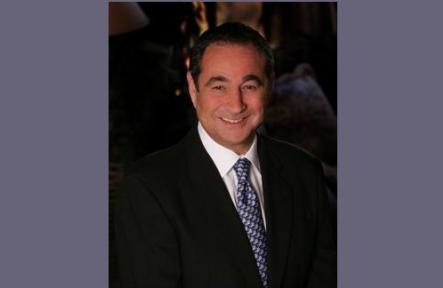What We Learned From the Upfronts - Michael Kassan

As always, upfront week served up a heady mix of the sublime and the ridiculous. Actually, we should call this "upfronts month," since it starts in late April now that every platform except sidewalk chalk drawings holds its own version of the broadcasters' annual gathering.
NBC had a monkey, Crystal, the simian show-stealer from the net's pilot Animal Practice.
Fox proved amongst younger demographics they are still the network to be "Idol"ized.
USA's actors gave the cable network's pitch in what was billed as a "suitless" presentation. (And talk about your sign of the times: #usaupfront was – at least for a little while – a trending topic on Twitter).
CBS' Les Moonves went medieval on Dish TV for its new ad-zapper Auto Hop, asking the media "how does [the satellite provider's chairman] Charlie Ergen expect me to produce 'CSI' without ads?"
Presumably, the question was rhetorical.
And then there was ABC's Jimmy Kimmel, who skewers his own network in particular and the upfronts in general every year, "I can't promise you any of these shows will be good. I can't promise you any of them will be successful. But what I can promise you is that they will be expensive to advertise in."
There are several big ideas underneath these upfront moments. First, cable gets equal billing with broadcast. Second, skipping ads still scares the bejeesus out of people. Each represents a critical issue in our business—and illustrates the real benefit of the upfronts.
Well, okay, there always are fun anecdotes, cool gimmicks, horseraces to handicap, and incidents to chuckle about. But it's not the new slates or the deals that make this week so important every year. For me, what makes the upfronts worthwhile is the substance that inevitably rises to the surface and sparks debate.
With the attention they command, the upfronts are sharp reminders of where we are and harbingers of where we're going.
Let's start with cable versus broadcast. For the second year in a row, cable is expected to bring in slightly more ad dollars than broadcast. Just as remarkable, a week before the upfronts began, Nielsen released research that indicates ad spending on cable nets has now reached parity with broadcast adspend. I really don't understand why this hasn't drawn more attention. Maybe because we're all so bedazzled with social media at the moment.
The reason for cable's ascension, of course, is content. We spend a lot of time, attention and money talking about content creation on digital platforms but the evolution of the ecosystem from "TV" to just "video" is powered by storytelling at least as much as technology. And cable really brings it in the storytelling department.
When Turner's Steve Koonin urged buyers to think of cable as "video destinations" instead of "networks," he may have been selling, but he was also accurately describing the core opportunity of our business today. We need to figure out what to do about a "video everywhere" universe before our consumers do.
We also saw metrics become an issue again, when NBC programming chief Ted Harbert called for a move to C7 ratings. This falls under the continuing evolution that began with the compromise decision to shift to live-plus C3 a couple of years ago. We've seen it coming. But it was telling that the gauntlet was thrown during an upfront presentation.
Hispanic TV took another huge step forward (no, I'm not talking about David Lawenda's dancing) with some fascinating programming, including English-language content aimed at bicultural viewers (such as the recently announced, English-language news channel from Univision and ABC). It was telling that the first negotiation done in the 2012-2013 upfront was an estimated nine-figure deal struck between Univision and Publicis Groupe on behalf of blue-chip advertisers Kellogg, Burger King and Mars.
And finally, the NewFronts, as I wrote about in this space last column, firmly planted the digital flag in the upfront soil, clearly a watershed moment in the history of our business.
Substance, not showmanship, is the real reason why the upfront not only doesn't die, but actually multiplies every year. So don't be surprised if next year, there's a sidewalk chalk drawing upfront. That starts in March.
Watch Jack Myers interview with David Lawenda at www.JackMyers.com.
Michael E. Kassan is Chairman and CEO of MediaLink, LLC, a leading Los Angeles and New York City-based advisory and business development firm that provides critical counsel and direction on issues of marketing, advertising, media, entertainment and digital technology. Michael can be reached at michael@medialinkllc.com
Read all Michael's MediaBizBloggers commentaries at Media Link-ed.
Check us out on Facebook at MediaBizBloggers.com
Follow our Twitter updates @MediaBizBlogger
The opinions and points of view expressed in this commentary are exclusively the views of the author and do not necessarily represent the views of MediaBizBloggers.com management or associated bloggers. MediaBizBloggers is an open thought leadership platform and readers may share their comments and opinions in response to all commentaries.


